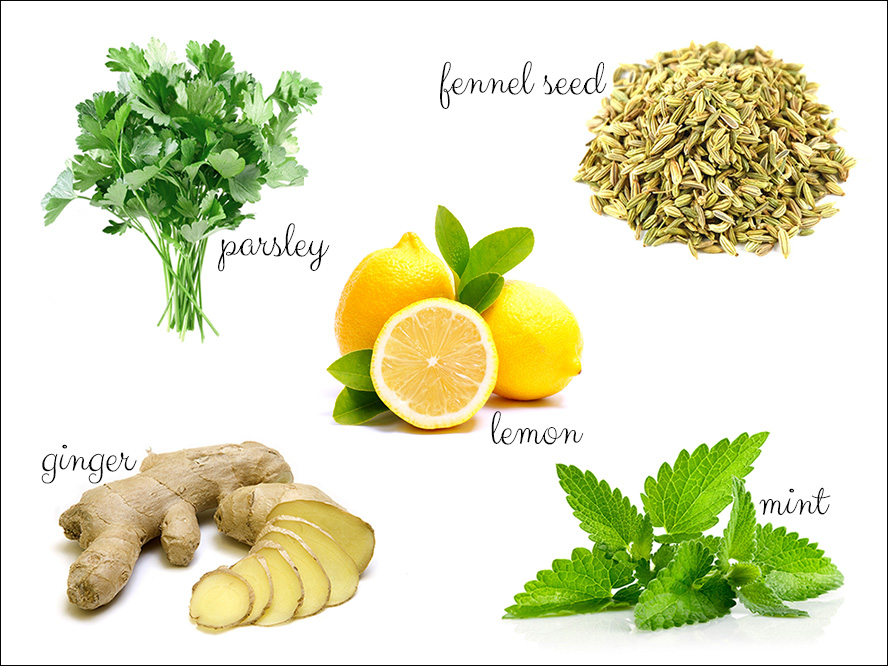Nutrition: How to Support Your GI System Through Nutrition

One common symptom that clients report to me during nutritional counseling is bloating! They are looking for guidance to help minimize the frequency and understand why it happens. When bloating occurs, you feel “stuffed” and your stomach appears to be swollen. This bloat is caused by excess gas that has built up in your digestive system, and the movement of content through your gut is disturbed.
While bloating feels like something that is just inevitable, it can be avoided or decrease in frequency. Females usually struggle with it more, particularly during their menstrual cycle. Now eliminating bloating forever is unrealistic due to special occasions like holidays or birthdays where you may eat something out of the norm which is okay and healthy!
When thinking about managing bloating, your first want to think about how certain foods make you feel. You want to pay attention to how your body responds to certain foods or ingredients. These are called intolerances and usually lead to bloating or GI discomfort.
There are five concepts to think about when trying to minimize bloating!
Spread your meals/snacks out throughout the day. Eating 1-2 large meals during the day can cause your GI (gastrointestinal) system to struggle to get these meals digested. Your body and GI track prefer smaller more frequent meals to optimize digestion and decrease any possible GI distress.
After eating get up and move around a bit. Walk around the house, to the mailbox and back, or just around the office. This can help move to promote further movement through your gut, and into the small intestine.
When we take in excess air this can cause our gut to “fill up,” exacerbating fullness with meals/snacks. Some ways excess air gets into our system can be from chewing gum, drinking carbonated beverages, or eating too quickly. Before starting to eat, take 1-2 deep breaths to get out any extra air.
Fiber is important in our body but too much fiber can cause GI distress, an excess bloating. The daily recommended intake of fiber for males is 38g/day and females are 25g/day.
Now for some foods that we can take into consideration! Some can help combat bloat while others can exacerbate bloating when consumed in large quantities. You do not need to eliminate foods on this “cause bloat” list – some people don’t get any symptoms from these foods.
Combating Bloat: ginger, green tea, avocados, peppermint, kimchi, sauerkraut, melon, asparagus, ginger, and more!
Causes Bloat: beans, lentils, artificial sweeteners, dairy, broccoli, Brussel sprouts, and more!
If you are struggling with bloating, reach out to a Registered Dietitian to get some advice and guidance on what foods or lifestyles may be causing your GI issues.


 Home Base
Home Base